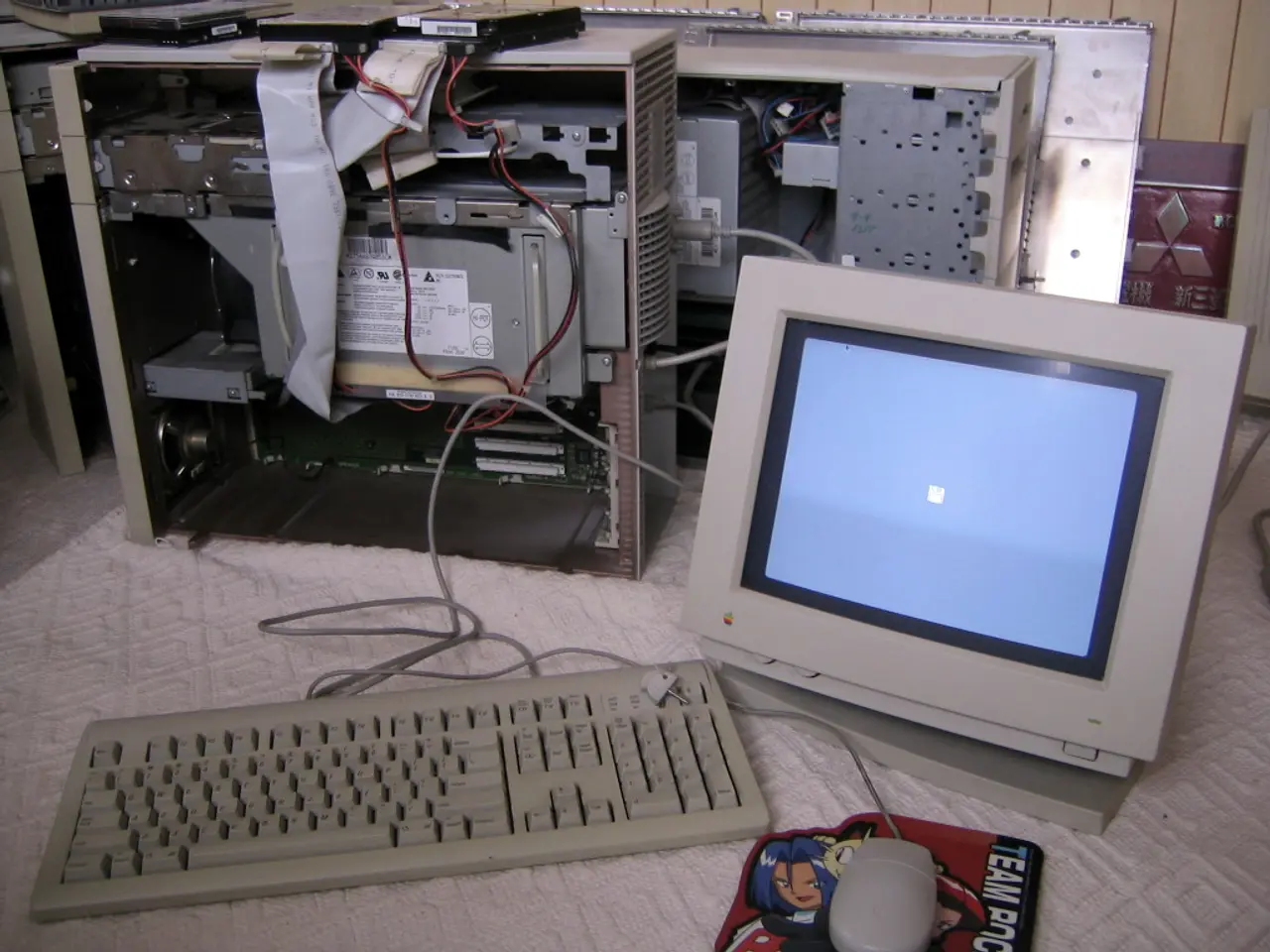Seizures Resulting from Brain Tumors: Essential Information
Managing Seizures in Brain Tumor Patients: A Comprehensive Approach
Brain tumors are a complex and challenging health issue, often leading to various symptoms, including seizures. This article explores the common types of brain tumors that cause seizures, the reasons behind these seizures, and the various treatment options available.
Common Types of Brain Tumors Causing Seizures
Gliomas, such as glioblastoma, are the primary culprits, responsible for 40 to 60 percent of tumor-related seizures [1][5]. These tumors disrupt the brain’s electrical activity, irritating or damaging brain tissue, particularly when located near areas responsible for electrical signaling [1][5].
Seizure Management
Antiepileptic medications are often used to manage seizures and prevent their recurrence. These are given alongside other tumor treatments to reduce seizure risk and associated symptoms [2].
Tumor-Directed Treatments
Surgery, when safely possible, is the primary method for treating seizures with a brain tumor, with the aim of removing as much of the tumor as possible to stop seizures [4]. Radiation therapy and chemotherapy are also used to target the tumor cells, reducing seizure frequency by controlling tumor growth [2].
Advanced Seizure Treatments
For drug-resistant seizures, epilepsy surgery may be considered, where the seizure-causing brain region is surgically removed. Advanced imaging and EEG monitoring help to localize this area to optimize surgical outcomes [4]. In cases where surgery is not feasible, options like vagus nerve stimulation or emerging laser treatments can help reduce seizure frequency and severity [4].
Understanding the Risk of Seizures
In around 2 in 3 people with a brain tumor, a seizure or epilepsy may occur [6]. The risk of seizures occurring depends on various factors, including type of brain tumor, location of brain tumor, how fast the brain tumor grows, the grade of brain tumor, number of lesions, and other factors [7].
Common Anti-Epileptic Medications for BTRE
Commonly used anti-epileptic medications for BTRE include levetiracetam, phenytoin, pregabalin, valproic acid, lamotrigine, lacosamide, brivaracetam, and perampanel [3].
Late-Stage Brain Tumor Symptoms
In the final stages of a brain tumor, symptoms may include seizures, drowsiness or excess sleepiness, changes in motor skills or movement, difficulty swallowing, and cognitive impairment such as memory problems or difficulty concentrating [3].
In conclusion, a comprehensive approach that offers both tumor control and seizure management is essential for improving the quality of life for patients with brain tumors. This approach includes a variety of treatments, from antiepileptic medications and tumor-directed treatments to advanced seizure treatments. Understanding the risk factors, common types of brain tumors, and available treatments is crucial for effective management of seizures in brain tumor patients.
| Aspect | Details | |-------------------------------|--------------------------------------------------------------------------------------| | Common tumor types causing seizures | Gliomas (e.g., glioblastoma), responsible for 40-60% of tumor-related seizures | | Seizure management | Antiepileptic drugs prescribed alongside tumor therapies | | Tumor-directed treatments | Surgery, radiation, chemotherapy to reduce tumor burden thus lowering seizures | | Advanced seizure treatments | Epilepsy surgery for drug-resistant seizures, neuromodulation (e.g., vagus nerve stimulation), laser therapy | | Risk of seizures | 2 in 3 people with a brain tumor may experience seizures or epilepsy | | Common anti-epileptic medications | levetiracetam, phenytoin, pregabalin, valproic acid, lamotrigine, lacosamide, brivaracetam, perampanel | | Late-stage symptoms | seizures, drowsiness, motor skill changes, difficulty swallowing, cognitive impairment |
[1] National Cancer Institute. (2021). Brain Tumors. https://www.cancer.gov/types/brain [2] American Society of Clinical Oncology. (2021). Brain Tumors. https://www.cancer.net/cancer-types/brain-tumors [3] Epilepsy Foundation. (2021). Brain Tumors and Epilepsy. https://www.epilepsy.com/learn/treating-seizures-and-epilepsy/treatments-for-epilepsy/antiepileptic-drugs/antiepileptic-drugs-for-specific-types-of-seizures/antiepileptic-drugs-for-brain-tumor-related-epilepsy-btre [4] Mayo Clinic. (2021). Brain Tumor Surgery. https://www.mayoclinic.org/diseases-conditions/brain-tumor/diagnosis/in-depth/brain-tumor-surgery/art-20046495 [5] National Institute of Neurological Disorders and Stroke. (2021). Brain Tumor. https://www.ninds.nih.gov/health-information/brain-tumors [6] National Cancer Institute. (2021). Seizures. https://www.cancer.gov/about-cancer/treatment/side-effects/brain/seizures [7] American Brain Tumor Association. (2021). Seizures and Brain Tumors. https://www.abta.org/resource/seizures-and-brain-tumors/
- Brain tumors, a neurological disorder, can lead to mental health issues such as seizures and epilepsy, affecting the overall health and wellness of patients.
- Cancer, particularly brain tumors, are known to cause seizures, with gliomas being the primary culprit, accounting for 40 to 60 percent of tumor-related seizures.
- Fortunately, science has provided various treatment options for managing epilepsy and seizures in brain tumor patients, including antiepileptic medications, surgery, radiation, chemotherapy, epilepsy surgery, vagus nerve stimulation, and emerging laser treatments.
- Managing seizures in brain tumor patients requires understanding the risk factors, common types of brain tumors, and available treatments, as this knowledge is crucial for effective management of mental health and neurological disorders associated with brain tumors.




